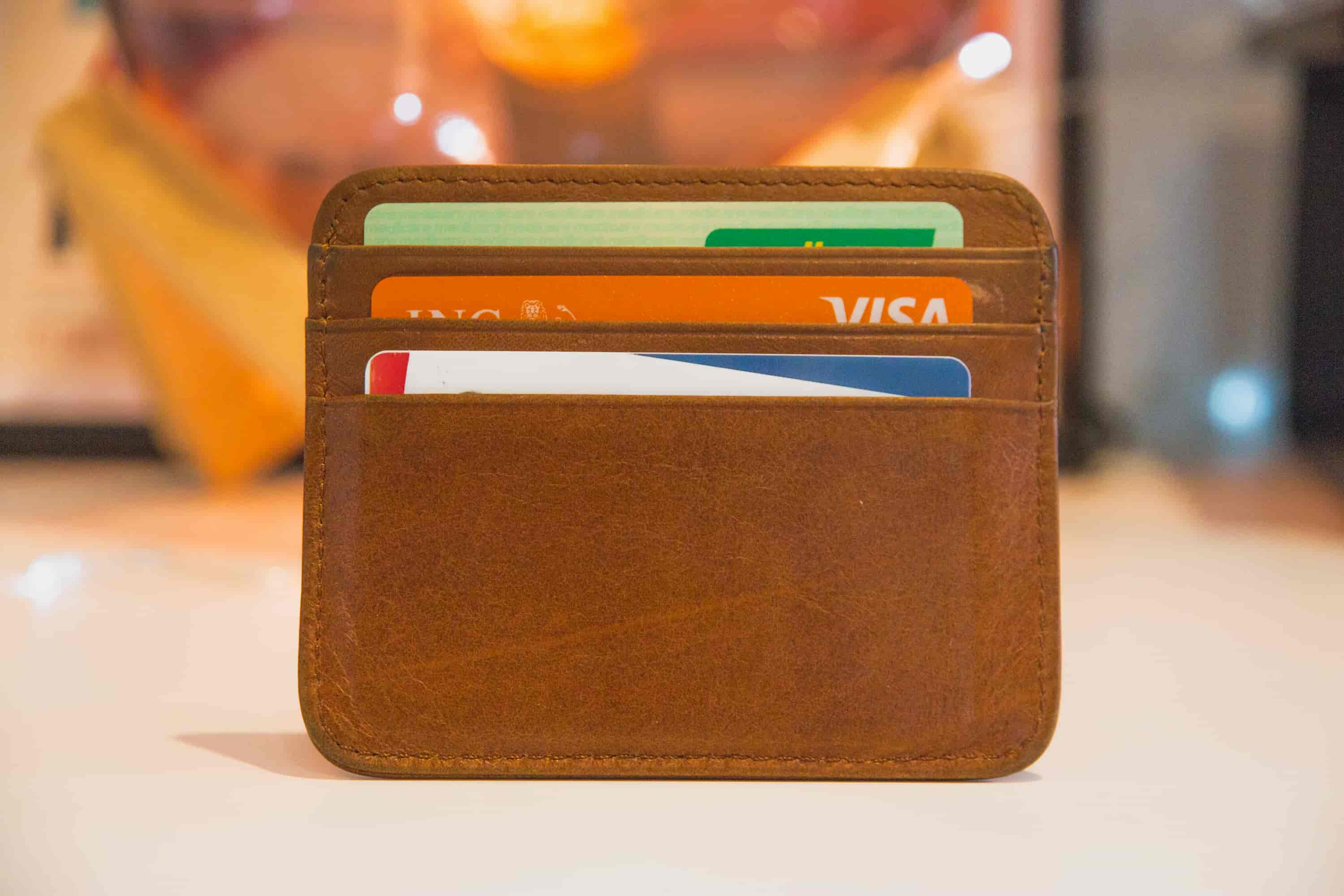

Finance
How To Build Credit Score At 18
Modified: March 10, 2024
Discover the best ways to build your credit score at 18 with our comprehensive finance guide. Take control of your financial future today!
(Many of the links in this article redirect to a specific reviewed product. Your purchase of these products through affiliate links helps to generate commission for LiveWell, at no extra cost. Learn more)
Table of Contents
- Introduction
- Understanding Credit Scores
- Why Building Credit Score at 18 is Important
- Steps to Build Credit Score at 18
- Open a Bank Account
- Get a Student Credit Card
- Use Credit Responsibly
- Pay Your Bills on Time
- Keep Your Credit Utilization Low
- Monitor Your Credit Report
- Build a Positive Payment History
- Avoid Applying for Multiple Credit Cards
- Seek Financial Education
- Conclusion
Introduction
Building a good credit score is an essential aspect of financial success. It establishes your creditworthiness and determines your ability to access loans, credit cards, and favorable interest rates. While many people start thinking about their credit score later in life, it is never too early to begin building credit. In fact, starting to build credit at the age of 18 can give you a head start in establishing a strong financial foundation.
At the age of 18, many individuals are either entering college or starting their professional careers. This is an opportune time to start building credit because it allows you to develop positive financial habits from an early age and take advantage of the various credit-building opportunities available to you.
In this article, we will explore why building a credit score at 18 is important and provide practical steps to help you navigate the process. By implementing these strategies, you can set yourself up for a bright financial future and gain the tools for financial independence.
Understanding Credit Scores
Before diving into the steps to build a credit score at 18, it’s important to understand what a credit score is and how it is calculated. A credit score is a three-digit number that represents your creditworthiness and indicates the likelihood that you will repay your debts on time.
The most commonly used credit scoring model is the FICO score, which ranges from 300 to 850. The higher your credit score, the better your chances of getting approved for credit and receiving favorable terms and interest rates.
Several factors contribute to your credit score:
- Payment History: This is the most critical factor and accounts for approximately 35% of your credit score. It reflects how consistently you make your payments on time.
- Credit Utilization: This refers to the percentage of your available credit that you are currently using. Keeping your credit utilization below 30% is generally recommended.
- Length of Credit History: The longer you have a credit history, the better. This factor accounts for around 15% of your credit score.
- New Credit Inquiries: Every time you apply for new credit, it can result in a hard inquiry on your credit report. Too many inquiries within a short period can negatively impact your credit score.
- Credit Mix: Having a diverse mix of credit accounts, such as credit cards, loans, and mortgages, can positively impact your credit score.
Understanding these factors and their weightage will help you make informed decisions when it comes to building your credit score. Now, let’s explore why building credit at the age of 18 is crucial for your financial future.
Why Building Credit Score at 18 is Important
Building a credit score at the age of 18 may not seem like a top priority when you’re just starting your journey into adulthood. However, it is a crucial step that can have a significant impact on your financial future. Here are some key reasons why building a credit score at 18 is important:
1. Establishing a Positive Credit History: Building credit early allows you to establish a positive credit history, which is essential for future financial endeavors. Whether you plan to buy a car, rent an apartment, or apply for a mortgage, having a solid credit history will make the process much smoother.
2. Access to Better Credit Terms: Building a good credit score at 18 opens doors to better credit terms and interest rates. Lenders often reserve their best terms for individuals with excellent credit scores, and by starting early, you can take advantage of these favorable terms in the future.
3. Financial Independence: Building credit at a young age fosters financial independence. It allows you to demonstrate your responsible financial behavior and gain the trust of lenders and creditors. This, in turn, provides you with more financial freedom and flexibility in making important life decisions.
4. Building a Foundation for the Future: By building credit at 18, you are setting yourself up for long-term financial success. Good credit habits established early on can have a compounding effect, helping you achieve your financial goals and aspirations throughout your lifetime.
5. Learning Financial Responsibility: Building credit at a young age also teaches valuable lessons about financial responsibility. It requires understanding credit, managing payments, and making responsible financial decisions. These skills are essential for navigating the complex financial landscape and can benefit you for years to come.
Overall, building a credit score at 18 is not just about the immediate benefits but also about laying a strong foundation for your financial future. It empowers you to take control of your financial well-being and opens up opportunities for personal and professional growth. Now, let’s explore the practical steps to start building your credit score at 18.
Steps to Build Credit Score at 18
Building a credit score at 18 may seem like a daunting task, but with the right approach, it can be manageable and rewarding. Here are some practical steps to help you build your credit score at 18:
- Open a Bank Account: Start by opening a checking or savings account at a reputable bank. Having a bank account shows financial stability and is a crucial first step in building your credit history.
- Get a Student Credit Card: Consider applying for a student credit card, which is specifically designed for students with limited or no credit history. These cards often have lower credit limits and favorable terms, making it easier for you to manage your expenses and build credit.
- Use Credit Responsibly: Once you have a credit card, use it responsibly. Only charge what you can afford to pay off each month, and avoid carrying over balances. This demonstrates to lenders that you are a responsible borrower.
- Pay Your Bills on Time: Timely bill payments, including credit card bills, utility bills, and student loans, are crucial for building credit. Late payments can have a negative impact on your credit score. Set reminders or automate payments to ensure you never miss a due date.
- Keep Your Credit Utilization Low: Aim to keep your credit utilization below 30% of your available credit limit. High credit utilization can indicate financial instability and may lower your credit score.
- Monitor Your Credit Report: Regularly check your credit report to ensure accuracy and identify any potential issues. You can obtain a free credit report from each of the three major credit bureaus once a year.
- Build a Positive Payment History: Consistently making on-time payments builds a positive payment history, which is an essential factor in your credit score. This demonstrates your reliability as a borrower.
- Avoid Applying for Multiple Credit Cards: While it may be tempting to apply for various credit cards, doing so can negatively impact your credit score. Limit your applications and only apply for credit when necessary.
- Seek Financial Education: Invest time in learning about personal finance and credit management. Understanding how credit works and practicing responsible financial habits can help you make informed decisions and build a strong credit score.
By following these steps and being patient, you can gradually build a solid credit score. Remember, building credit is a long-term process, and it requires discipline and responsible financial behavior. Now, let’s wrap up the article.
Open a Bank Account
Opening a bank account is an important first step in building your credit score at the age of 18. Having a bank account demonstrates financial stability and responsibility to lenders and credit bureaus. Here’s what you need to know about opening a bank account:
Choose the Right Type of Account: Look for a bank that offers a basic checking or savings account suitable for your needs. Consider factors such as minimum balance requirements, fees, and accessibility. Many banks offer special accounts for students or young adults, which may have additional perks or lower fees.
Gather the Necessary Documents: To open a bank account, you will need to provide certain documents, such as your Social Security number, government-issued identification (driver’s license or passport), proof of address, and proof of income if applicable. Make sure to have these documents ready before visiting the bank or applying online.
Compare Banks: Research different banks and compare their offerings, fees, and customer reviews. Look for banks that have user-friendly online or mobile banking platforms, convenient ATM access, and good customer service. Consider choosing a bank that has branches or ATMs near your home, workplace, or school.
Establish a Banking Relationship: Opening a bank account allows you to establish a relationship with the bank. This can be beneficial in the future when you need other financial services or products, such as loans, credit cards, or mortgages. Building a positive relationship with your bank can also provide you with access to financial advice and guidance.
Manage Your Account Responsibly: Once you’ve opened a bank account, it’s important to manage it responsibly. Keep track of your transactions, monitor your account balance, and avoid overdrawing your account. Utilize online or mobile banking features to set up alerts and notifications for account activity and upcoming bill payments.
Opening a bank account is a fundamental step in building credit at 18. It not only provides a secure place to manage your finances but also creates a foundation for future financial growth. As you continue to build credit, having a bank account also becomes essential for activities such as paying bills, receiving direct deposits, and establishing a positive banking history.
Now that you understand the importance of opening a bank account, let’s move on to the next step in building your credit score at 18 – getting a student credit card.
Get a Student Credit Card
Getting a student credit card is a smart and strategic move when it comes to building your credit score at the age of 18. A student credit card is designed specifically for students who have little or no credit history, making it easier to get approved. Here’s what you need to know about getting a student credit card:
Shop Around and Compare: Research different credit card options available to students and compare their features, rewards, fees, and interest rates. Look for cards that have low or no annual fees, reasonable interest rates, and benefits that align with your spending habits or interests.
Consider Secured Cards: If you have difficulty getting approved for a traditional student credit card, consider applying for a secured credit card. Secured cards require a cash deposit as collateral, which serves as your credit limit. This can be a good option to build credit as the activity on the card is reported to the credit bureaus.
Start with a Low Credit Limit: When you receive your student credit card, it’s likely that it will have a lower credit limit compared to other types of credit cards. This is normal and serves as a safety measure to help you manage your spending responsibly and avoid accumulating too much debt.
Use the Card Wisely: Once you have your student credit card, use it responsibly. Make small purchases that you can easily pay off in full each month. This demonstrates your ability to manage credit and make timely payments.
Pay Your Bills on Time: Timely payment of your credit card bill is crucial for building your credit score. Set up automatic payments or reminders to ensure you never miss a payment. Late payments can have a negative impact on your credit history and lower your credit score.
Keep the Utilization Rate Low: Credit utilization is the ratio of your credit card balance to your credit limit. Aim to keep your credit utilization below 30% for optimum credit scoring. Higher utilization can indicate financial instability and may have a negative impact on your credit score.
Track Your Spending: Stay on top of your credit card spending by monitoring your transactions regularly. Use online or mobile banking tools provided by the credit card issuer to track your expenses and detect any unauthorized or fraudulent transactions.
Build a Positive Credit History: Consistently using your student credit card and making on-time payments will help you build a positive credit history. This demonstrates to lenders and credit bureaus that you are a responsible borrower, which will have a positive impact on your credit score.
Remember that a student credit card is a tool for building credit and should be used responsibly. It’s important to avoid overspending or relying too heavily on credit. Treat your credit card as a means to establish a credit history and practice good financial habits.
Now that you have your student credit card, let’s move on to the next step – using credit responsibly to further boost your credit score at 18.
Use Credit Responsibly
Using credit responsibly is a critical step in building and maintaining a good credit score at the age of 18. When used wisely, credit can be a valuable tool for achieving financial goals and establishing a solid credit history. Here are some key tips for using credit responsibly:
1. Stick to a Budget: Before making any purchases with credit, create a budget to determine how much you can afford to spend and what portion of it can be paid using your credit card. Avoid impulse buying and only charge what you can pay off in full each month.
2. Avoid Maxing out Your Credit Limit: Maxing out your credit limit can negatively impact your credit score. Aim to keep your credit utilization ratio below 30% by avoiding large balances on your credit card. Keeping your balances low shows lenders that you are responsible with credit.
3. Pay Your Balance in Full: Paying your credit card balance in full and on time each month is crucial for building a positive credit history. Avoid carrying over balances, as this can lead to accumulating interest and potentially hinder your ability to pay off your debts in the future.
4. Minimize New Credit Applications: Every time you apply for new credit, it results in a hard inquiry on your credit report. Too many inquiries within a short period can negatively impact your credit score. Only apply for credit when necessary and avoid applying for multiple cards at once.
5. Be Aware of Interest Rates and Fees: Read the terms and conditions of your credit card agreement to understand the interest rates, fees, and penalties associated with your card. Avoid late payment fees by paying your bill on time, and be mindful of the interest charges if you carry a balance.
6. Regularly Review Your Credit Card Statements: Take the time to review your credit card statements each month for accuracy and unauthorized charges. If you notice any discrepancies or suspicious activity, report it to your credit card issuer immediately.
7. Keep Track of Your Credit Score: Stay informed about your credit score by regularly checking your credit reports. Many financial institutions offer free credit monitoring services that allow you to track changes to your credit score and receive alerts in the event of any suspicious activity.
8. Seek Financial Education: Expand your knowledge about credit and personal finance by seeking financial education. Numerous resources, both online and offline, offer guidance on budgeting, managing credit, and building a strong financial foundation.
By using credit responsibly, you not only establish a good credit history but also develop strong financial habits that will benefit you throughout your life. Remember, building a solid credit score takes time and discipline, so it’s important to be patient and consistent in your financial practices.
Now that you understand the importance of using credit responsibly, let’s move on to the next step – paying your bills on time.
Pay Your Bills on Time
Paying your bills on time is a crucial aspect of building a good credit score at the age of 18. Timely bill payments demonstrate your financial responsibility and reliability to lenders and credit bureaus. Here are some key tips for ensuring timely bill payments:
1. Set Up Reminders: Utilize reminders or calendar alerts to keep track of your bill payment due dates. Missing payment deadlines can result in late fees and negatively impact your credit score. Setting up reminders helps you stay organized and ensures that you never miss a payment.
2. Automate Payments: Consider setting up automatic payments for your bills. This way, the amount due will be deducted from your bank account on the specified due date each month. Automating payments not only saves time but also reduces the chances of forgetting to make a payment.
3. Prioritize Essential Bills: If you have multiple bills to pay each month, prioritize essential expenses such as rent or mortgage, utilities, and student loan payments. By ensuring these payments are made on time, you maintain a positive payment history, which is vital for your credit score.
4. Create a Budget: Developing a budget helps you allocate funds for your bills and other financial obligations. By understanding your income and expenses, you can plan and allocate sufficient funds to cover your bills. A budget can also help you identify areas where you may need to cut back on spending to ensure you can meet your financial obligations.
5. Consider Payment Options: Be aware of the various payment options available for your bills. Some companies offer online or mobile payment platforms that allow you to make secure and convenient payments. Take advantage of these options to streamline the bill payment process.
6. Keep an Eye on Due Dates: It’s essential to be aware of due dates for your bills. Missing even a single payment can impact your credit score. Consider setting reminders several days in advance of the due date to give yourself enough time to make the payment.
7. Be Proactive: If you’re experiencing financial difficulties and are unable to make a payment on time, reach out to the billing company. They may be able to offer assistance or provide you with a solution, such as adjusting your payment schedule or offering a temporary payment plan.
8. Monitor Your Payment History: Regularly review your credit reports to verify that your payment history is accurately reported. Any errors or discrepancies should be reported promptly to the credit bureaus to ensure your credit score is not negatively impacted.
Paying your bills on time is an essential element in building and maintaining a positive credit history. By developing strong financial habits and making timely payments, you establish yourself as a reliable borrower, which will enhance your creditworthiness and open doors to future financial opportunities.
Now that you understand the importance of paying your bills on time, let’s move on to the next step – keeping your credit utilization low.
Keep Your Credit Utilization Low
Maintaining a low credit utilization ratio is key to building and improving your credit score at the age of 18. Your credit utilization ratio is the percentage of your available credit that you are currently using. Keeping this ratio low demonstrates responsible credit usage and financial stability. Here are some tips for keeping your credit utilization low:
1. Understand Your Credit Limit: Familiarize yourself with the credit limits on your credit cards. Your credit limit is the maximum balance you can carry on your card. Knowing your limit will help you determine how much credit you have available for use.
2. Aim for a Utilization of 30% or Less: It is generally recommended to keep your credit utilization ratio below 30%. For example, if you have a credit limit of $1,000, try to keep your balances below $300. Higher utilization may suggest financial strain and can negatively impact your credit score.
3. Pay Off your Balance in Full Each Month: Strive to pay off your credit card balance in full every month. By doing so, you reduce the amount of credit you are utilizing, which helps keep your utilization ratio low. Paying in full also avoids accumulating interest charges.
4. Spread out Purchases: Instead of making large purchases that consume a significant portion of your available credit, try to spread out your expenses across different billing cycles. This helps maintain a lower overall utilization rate and demonstrates responsible credit behavior.
5. Monitor Your Balances: Regularly monitor your credit card balances to ensure they are within a manageable range. Keeping a close eye on your balances can help you make adjustments in your spending habits if necessary to keep your utilization low.
6. Consider Requesting a Credit Limit Increase: As you build a positive credit history, you may be eligible for a credit limit increase. Requesting a higher credit limit can help lower your credit utilization ratio, as long as you continue to use credit responsibly and avoid increasing your spending.
7. Be Mindful of Multiple Cards: If you have multiple credit cards, it’s important to keep an eye on the combined utilization across all your cards. Even if the utilization on each card is low individually, the total utilization can impact your credit score. Aim to keep the overall utilization rate low.
8. Pay Attention to Reporting Dates: Credit card issuers typically report your balances to the credit bureaus on a certain date each month. To ensure that the reported balance reflects a low utilization, try to make payments prior to the reporting date. This way, your balance will be lower when it gets reported to the credit bureaus.
Maintaining a low credit utilization ratio demonstrates responsible credit management and can significantly impact your credit score. By keeping your utilization low, you enhance your creditworthiness and increase your chances of obtaining favorable loan terms and credit offers in the future.
Now that you know how to keep your credit utilization low, let’s move on to the next step – monitoring your credit report.
Monitor Your Credit Report
Monitoring your credit report is an important step in building and maintaining a good credit score at the age of 18. Your credit report is a detailed record of your credit history and plays a significant role in evaluating your creditworthiness. Here’s why monitoring your credit report is crucial:
1. Identify Errors or Inaccuracies: By regularly checking your credit report, you can identify any errors or inaccuracies that may be negatively impacting your credit score. Common errors include incorrect personal information, accounts that don’t belong to you, or late payments that were actually made on time. Correcting these errors can help improve your credit score.
2. Detect Signs of Identity Theft: Monitoring your credit report allows you to detect any fraudulent activity or signs of identity theft. If you notice any unfamiliar accounts or suspicious inquiries, it could be an indication that someone has accessed your personal information. Taking immediate action can help mitigate potential damage to your credit and financial well-being.
3. Understand Your Creditworthiness: Your credit report provides insight into your creditworthiness from the perspective of lenders and creditors. By reviewing your credit report, you can assess how your financial behavior is perceived and make any necessary adjustments to improve your creditworthiness.
4. Track Your Progress: Regularly monitoring your credit report allows you to track the progress of your credit-building efforts. You can see how your credit score has changed over time and evaluate the impact of your positive financial habits. This can be motivating and help you stay on track towards reaching your credit goals.
5. Address Issues Promptly: If you identify any errors, inaccuracies, or signs of fraudulent activity on your credit report, it’s important to address them promptly. Contact the credit bureaus to dispute any incorrect information and work towards resolving any issues that may arise. Taking immediate action ensures that your credit report accurately reflects your creditworthiness.
6. Take Advantage of Free Annual Reports: Under federal law, you are entitled to one free credit report from each of the three major credit reporting agencies (Equifax, Experian, and TransUnion) annually. Take advantage of this by ordering your free reports and reviewing them regularly.
7. Utilize Credit Monitoring Services: Consider enrolling in credit monitoring services that provide regular updates on changes to your credit report, including credit score updates and alerts for any unusual activity. These services can provide valuable insights and help you stay proactive in managing your credit.
8. Stay Informed and Educated: Continuing to educate yourself about credit and financial management is crucial. Understand how credit scores are calculated, the factors that influence your score, and the best practices for building and maintaining good credit. This knowledge will empower you to make informed decisions and monitor your credit effectively.
By monitoring your credit report regularly, you can ensure that the information is accurate, identify any potential issues, and take the necessary steps to maintain a positive credit history. This proactive approach to monitoring your credit report will contribute to your overall credit health and help you achieve your financial goals.
Now that you understand the importance of monitoring your credit report, let’s move on to the next step – building a positive payment history.
Build a Positive Payment History
Building a positive payment history is essential for establishing a strong credit score at the age of 18. Your payment history accounts for a significant portion of your credit score, indicating how consistently you make your payments on time. Here are some effective strategies to build a positive payment history:
1. Pay on Time, Every Time: Make it a priority to pay all your bills, including credit card bills, student loans, and utility bills, on time. Late or missed payments can have a significant negative impact on your credit score. Set up reminders or automatic payments to ensure you never miss a due date.
2. Prioritize Essential Payments: If you’re facing financial constraints, prioritize essential payments such as rent, utilities, and loan installments. Ensuring these payments are made on time reflects responsible financial behavior and helps maintain a positive payment history.
3. Pay in Full: Whenever possible, pay your credit card balances in full each month. This not only helps you avoid interest charges but also demonstrates that you can effectively manage your credit and repay your debts responsibly.
4. Set Up Payment Reminders: Establishing payment reminders can help you stay organized and remember your payment due dates. Utilize smartphone apps, calendar alerts, or automatic payment systems to ensure you stay on track with your payments.
5. Consider Payment Plans: If you’re struggling to meet certain financial obligations, reach out to your creditors or lenders and inquire about available payment plans or hardship programs. These options can provide more flexibility in making your payments and prevent negative marks on your credit report.
6. Foster Communication with Creditors: If you anticipate difficulty in making a payment, proactively communicate with your creditors. They may be able to offer alternative payment arrangements or modify your payment due dates to accommodate your situation. Maintaining open lines of communication can help you avoid penalties and protect your credit score.
7. Avoid Collection Accounts: Failing to pay your bills can result in collection accounts, which severely impact your credit score. Avoiding collection accounts is crucial for maintaining a positive payment history. If you’re struggling to make payments, explore options such as debt consolidation or working with a credit counseling service.
8. Be Patient: Building a positive payment history takes time. Consistency in making on-time payments and showing responsible credit behavior over a sustained period will lead to a stronger credit score. Be patient and continue to prioritize making your payments on time.
Building a positive payment history is an ongoing process and requires discipline and commitment. By consistently making your payments on time and demonstrating responsible credit behavior, you establish yourself as a reliable borrower, which will contribute to a higher credit score and better financial opportunities in the future.
Now that you know how to build a positive payment history, let’s move on to the next step – avoiding applying for multiple credit cards.
Avoid Applying for Multiple Credit Cards
While having a credit card is a useful tool for building credit, it’s important to exercise caution and avoid applying for multiple credit cards simultaneously, especially at the age of 18. Here’s why you should be mindful of the number of credit cards you have:
1. Impact on Credit Score: Each time you apply for a new credit card, it results in a hard inquiry on your credit report. Multiple hard inquiries within a short period can negatively impact your credit score. Lenders may perceive this as a risk, as it may appear that you are seeking excessive credit.
2. Credit Utilization Concerns: A high number of credit cards can lead to increased temptation to use credit irresponsibly. It is important to maintain a low credit utilization ratio to build a strong credit score. Managing multiple credit cards can make it more challenging to keep track of your balances and payments, increasing the risk of higher credit utilization.
3. Potential Debt Accumulation: Having multiple credit cards can make it easier to accumulate debt if not managed carefully. Each credit card carries its own credit limit, and the more credit available, the greater the risk of overspending and carrying higher balances, which can lead to long-term debt and financial stress.
4. Administrative Challenges: Managing multiple credit card accounts can be administratively burdensome, resulting in increased complexity when it comes to tracking statements, due dates, and potential fraud or errors. It may become difficult to stay organized and monitor your credit activity effectively.
5. Focus on Responsible Credit Usage: Building a strong credit score is not solely about the number of credit cards you have; it’s more about how you use credit responsibly. Rather than pursuing multiple credit cards, focus on using a single credit card responsibly, making timely payments, and keeping your credit utilization low.
6. Long-Term Financial Planning: Instead of acquiring multiple credit cards at a young age, it may be more beneficial to focus on long-term financial planning. This could involve setting financial goals, establishing an emergency fund, and considering other types of credit, such as student loans, that can contribute positively to your credit history.
7. Time for Credit Building: Building credit takes time, and it is important to allow your credit history to mature naturally. By establishing a positive payment history with one or two credit cards, you can gradually build a strong credit score over time. Rushing to acquire multiple credit cards may not necessarily expedite the credit-building process.
8. Seek Professional Advice: If you’re uncertain about how many credit cards you should have or how to navigate the world of credit, consider seeking advice from a financial professional or credit counselor. They can provide personalized guidance based on your specific financial situation and goals.
Remember, responsible credit usage is key to building a solid credit score. Focus on managing your existing credit card wisely, keeping your credit utilization low, and making timely payments. By doing so, you can establish a strong credit profile without the complications and potential risks associated with multiple credit card accounts.
Now that you understand the importance of avoiding multiple credit cards, let’s move on to the final step – seeking financial education.
Seek Financial Education
Seeking financial education is a valuable step in building a strong credit score at the age of 18. By expanding your knowledge and understanding of personal finance, you can make informed decisions, develop healthy financial habits, and achieve long-term financial success. Here’s why you should prioritize financial education:
1. Empower Yourself: Financial education empowers you to take control of your financial future. By learning about budgeting, saving, investing, credit management, and other financial topics, you gain the knowledge and skills necessary to make sound financial decisions.
2. Make Informed Choices: A solid understanding of personal finance equips you to make informed choices that align with your financial goals. Whether it’s deciding on credit options, investing in your future, or managing your expenses, financial education provides the foundation for making wise financial decisions.
3. Establish Good Financial Habits: Financial education helps you develop good financial habits from an early age. You can learn about the importance of budgeting, saving, and living within your means. By implementing these habits, you create a strong foundation for financial stability and success.
4. Navigate the Complexities of Credit: Understanding how credit works is crucial for building a strong credit score. Financial education can teach you the intricacies of credit, including how credit scores are calculated, the factors that influence your score, and strategies for effectively managing credit and debt.
5. Avoid Costly Mistakes: Without financial literacy, it’s easy to fall into common financial pitfalls, such as excessive debt, high-interest loans, or poor investment decisions. Financial education provides the tools and knowledge to avoid these costly mistakes and make sound financial choices.
6. Adapt to Changing Financial Landscape: The financial world is constantly evolving, and financial education helps you stay up to date with the latest trends, technologies, and regulations. By staying informed, you can adapt to changes in the financial landscape and make informed decisions that align with your financial goals.
7. Take Charge of Your Financial Well-Being: Financial education empowers you to take charge of your financial well-being. It allows you to assess your financial situation, set realistic goals, and develop a plan to achieve them. With financial education, you become an active participant in your financial journey.
8. Access Professional Resources: Seeking financial education opens doors to a wide range of professional resources. You can attend seminars, workshops, or webinars, read books, access online courses, or consult with financial advisors who can provide personalized guidance and support based on your individual needs and goals.
9. Foster a Lifetime of Financial Success: Financial education is not a one-time event but a lifelong learning process. By investing in your financial knowledge at a young age, you lay the groundwork for a lifetime of financial success. Continued learning and ongoing financial education will keep you informed and proactive in managing your finances.
Whether through self-study, formal education, or utilizing the resources available online and from financial institutions, seeking financial education is a worthwhile endeavor. By equipping yourself with financial knowledge, you can make informed decisions, build a strong credit score, and achieve your financial goals.
With this final step, you have now learned about the key strategies to build a credit score at 18. By following these steps, establishing responsible financial habits, and seeking ongoing financial education, you are on your way to a bright financial future and a strong credit profile.
Remember, building credit takes time, so be patient and remain consistent in your efforts. Your financial discipline and responsible credit behavior will pay off in the long run. Good luck on your journey to building a strong credit score!
Conclusion
Building a credit score at the age of 18 is an important step towards a solid financial future. By understanding credit scores, recognizing the importance of building credit at a young age, and implementing the right strategies, you can establish a strong credit profile that will benefit you throughout your life.
We discussed the significance of opening a bank account as a foundational step towards building credit. Additionally, getting a student credit card can help you establish credit history and develop responsible credit habits. We emphasized the importance of using credit responsibly, paying bills on time, keeping credit utilization low, and monitoring your credit report for errors and signs of fraud. Seeking financial education is also essential for developing strong financial habits and making informed decisions.
Remember, building credit takes time and requires patience. It’s important to understand that responsible credit usage and consistent, on-time payments are key to a strong credit score. Avoiding multiple credit card applications and focusing on long-term financial planning will contribute to your financial well-being.
By following these steps and prioritizing financial education, you are setting yourself up for success. Building a positive credit history at the age of 18 will pave the way for easier access to credit, better interest rates, and more financial opportunities in the future.
Take charge of your financial journey, stay informed, and adapt to the changing financial landscape. With discipline, responsible financial habits, and ongoing financial education, you can build a strong credit score and achieve your financial goals.
Remember, your credit score is a reflection of your financial responsibility and trustworthiness. It’s an important aspect of your financial health, so take the necessary steps to build and maintain it. With time and dedication, you can create a solid credit foundation that will benefit you for years to come.
Now, armed with the knowledge and strategies shared in this article, you’re ready to embark on your journey to building a strong credit score at the age of 18. Best of luck in your financial endeavors!














